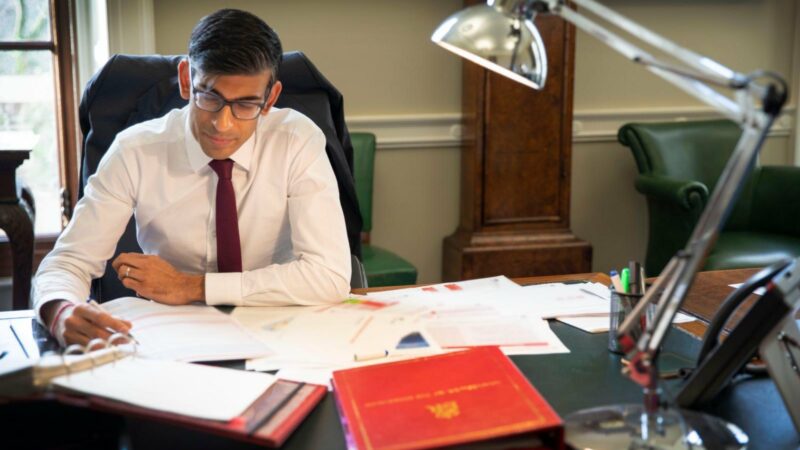
Did Rishi Sunak just deliver a Labour budget? The government expects to borrow almost £100bn more this parliament as a result of the spending plans announced yesterday (not including urgent coronavirus measures). Jeremy Corbyn described the Budget as “an admission of failure” and “an admission that austerity has been a failed experiment”, while John McDonnell said the “Tories want to be congratulated for starting to rebuild what they destroyed”. These are the top lines of the Labour leadership’s response, and they appear to suggest that Labour has scored some kind of victory. Yet this narrative doesn’t seem helpful to Labour’s future electoral prospects – and increased borrowing does not a Labour budget make.
There were gaping holes in the Budget, particularly social care. The offer on statutory sick pay was not strengthened beyond bringing it forward to day one, which means the pay is still incredibly low and not available to many gig economy workers or the self-employed. There was little sight of any ‘green budget’. Generally, Sunak took advantage of globally low interest rates but the spending is going towards infrastructure rather than public services. It made no real attempt to fix our social security system, nor did it offer local government the funding it desperately needs – in fact, business rates have been scrapped for some small businesses.
The inadequacy of where the spending was allocated is not the only reason that Labour should not be celebrating this budget nor claiming any kind of victory. Labour’s 2019 manifesto didn’t just propose to splash the cash – it was radical on ownership, it offered to improve daily lives by scrapping punitive welfare assessments, it promoted the principle of universalism. The document may have been ‘overloaded’ and poorly sold to the public. But the future of Labour is not well-served if, when judging the Budget, power dynamics are ignored in favour of a metric focussing on whether expansionary fiscal policy was used.
Covid-19 has now been classified as a pandemic, and the Prime Minister is set to confirm today that the UK will move to the ‘delay’ stage of its response. It is unclear so far what this will mean in practice. The government is still not keen on closing parliament, despite the potential of MPs to be ‘super spreaders’ as they travel more than most and meet lots of people every day. Six MPs including three ministers, plus a number of staffers, are now self-isolating. Councillors such as Alice Perry have called for the May elections to be postponed, but there are no plans to do so yet. Is canvassing really a good idea at this time?
Labour’s Jonathan Ashworth raised some of the concerns over the government’s response after Matt Hancock delivered a coronavirus statement in the Commons last night. The editor-in-chief of The Lancet, among others, has suggested that “we are perhaps placing too much emphasis on behavioural science”, Ashworth said. The influence of the ‘nudge unit’ on the advice being dispensed is certainly not something that I find reassuring. Hancock did not address that question, instead choosing to invoke a straw man: “There are some voices that are saying that we should not base our response entirely on the science, but I think that they are wrong.” Hopefully the measures announced today will instill more confidence, and Labour will be able to raise further concerns in its meeting on the forthcoming emergency legislation.
- Friday: Shami Chakrabarti panel event on how society is failing victims of sexual violence at LSE (free to attend, 6pm)
- Saturday: BAME leadership hustings in London (11.30am; 2pm)




More from LabourList
‘SEND reforms are a crucial test of the opportunity mission’
Delivering in Government: your weekly round up of good news Labour stories
Labour place third in Gorton and Denton by-election as Greens gain seat